Have you ever heard of a saying Mind over body? It is funny, I would not use the word mind there but go for the brain instead and since the brain is a part of our body too, the saying becomes redundant. The brain controls all our functions including those related to hormone production and we must ask ourselves is the placebo effect only a delusion with no real health benefits or is something really there? Science says the placebo effect is real and there is no doubt about it. Your brain can be tricked to heal your body but when it comes to understanding why and how is that possible, we have theories but none of them has been confirmed and proclaimed as accurate.
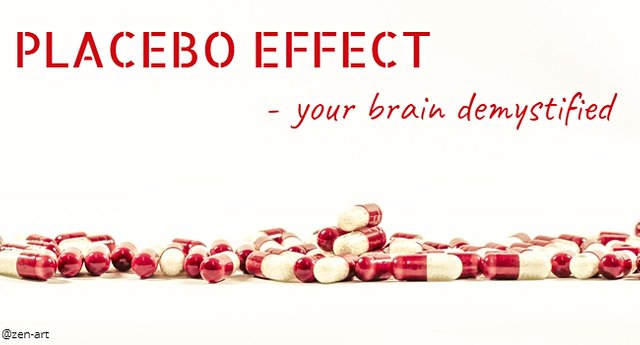
CC0 licence, Pixabay, author: frolicsomepl , adapted by me
Placebo and placebo effect are two different things and while placebo effect can be a subject of various contradictions, placebo is extremely useful in medicine, especially in the double-blind studies. One group of participants are given the actual medicine while another is given the placebo. Results are observed and measured but compared at the very end because nor the participants nor the researches know which person got what pill, ergo the title double-blind. For a certain drug to be considered beneficial, it has to have results higher than placebo had.


In medical research, a part of the patients in a study are administered a placebo while other participants receive the actual treatment. This is done to determine whether or not the treatment has a real effect. If participants who were taking the actual drug demonstrate a significant improvement over those that were taking the placebo, the study can claim the drug's effectiveness.
Advantages are numerous
Every medicine needs to be tested before it is released to the public. It is important that we learn if the medicine is actually treating an illness and what are its potential risks. The level of effectiveness is what researchers are interested in and the comparison with treatments that are already available. To eliminate or minimize the effect that expectations can have on the outcome, they use placebos.
Researcers are humans too
Every researcher expects to find a certain result and he or she may unknowingly convey clues, known as demand characteristics. Those clues might lead participants to guess what the researcher hopes to find and sometimes change their behavior. To prevent that, double-blind studies, where the researchers do not know what kind of pill they are giving, are a must and placebos are used.
A placebo is not a "real" medical treatment but it seems like it is. It could be a pill, a shot, or some other treatment. When it comes to pills, they usually contain sugar and hence the name sugar pills. Placebos do not contain an active substance meant to affect the health.


The placebo effect is a response that person has to placebo. It can be positive or negative and not all people have it. Some people can have side effects from the treatment and others can get improved symptoms.
"The placebo effect is more than positive thinking — believing a treatment or procedure will work. It's about creating a stronger connection between the brain and body and how they work together"
Professor Ted Kaptchuk of Harvard-affiliated Beth Israel Deaconess Medical Center
Placebo works on symptoms
modulated by the brain
Placebos will make you feel better but they will not cure all illnesses. They work on symptoms modulated by the brain and are most effective for conditions like pain management, stress-related insomnia, depression, anxiety, irritable bowel syndrome (IBS), chronic pain, and cancer treatment side effects. There are estimates that approximately 30 to 60 percent of people will feel a decrease in their pain after taking a placebo pill which is considered a controversial and revolutionary way of thinking how the brain-body relationship may be stronger than we think.


One of the most common theories about the placebo effect tells us that the placebo effect takes place because of a person's expectations. When a person expects a pill to do something, it's possible that the body's own chemistry can cause effects similar to what a real pill would have caused. A release of endorphins is triggered and we all know that they have a structure similar to morphine and act like the brain's own natural painkillers. Brain scans revealed that many opiate receptors were activated in both the placebo and treatment groups.
The strength of the placebo effect
depends on many factors
Factors involved in placebo effect range from white suits we are exposed in hospitals to the color of the pill we take. An injection will cause a stronger placebo effect than a tablet, and capsules are stronger than tablets. Also, larger pills produce greater reactions. There has been a review of multiple studies that found how the color of pills made a difference to the placebo results. You can read the entire review here:
Effect of colour of drugs: systematic review of perceived effect of drugs and of their effectiveness by de Craen AJ, Roos PJ, de Vries AL, Kleijnen J. from the Department of Clinical Epidemiology, Academic Medical Centre, University of Amsterdam, Netherlands.
Personally, the most interesting findings about the placebo effect are that it varies between cultures. In treating gastric ulcers, the placebo effect is low in Brazil, higher in northern Europe and very high in Germany. Germans are also the ones that have the lowest effect of the placebo effect on hypertension.


The placebo effect changes from one individual to another and its strength varies so the reasons for the influence of it are not fully understood but it is highly likely that there is more than one mechanism at work. 4 factors that are often taken into consideration are:
- Expectation and conditioning
- Psychoneuroimmunology
- Evolved health regulation
- Neurological changes
The expectation and conditioning with white coats and expecting the pill to work we already covered. We also covered the neurological changes with increases in dopamine and opioid receptor activity. I have to add here that given how the same areas of the brain are targeted by antidepressant drugs, it is not that surprising that the placebo response rate in antidepressant trials is 50% to 75%. You can read the research about that here:
Changes in Brain Function of Depressed Subjects During Treatment With Placebo by Andrew F. Leuchter , M.D., Ian A. Cook , M.D., Elise A. Witte , Ph.D., Melinda Morgan , Ph.D., and Michelle Abrams , R.N.
A positive outlook can help with illness
The power of positive thinking was long considered to be a part of pseudo-science but guess what, it is not anymore. A dog can be conditioned to salivate at the sound of a bell, mice be conditioned to restrain their immune system when presented with a specific stimulus, and people can impact the efficacy of their immune system with expecting improvements which confirms that pathways by which the brain is impacting our immune system are fairly complex. This does not, in any way, suggest that you should stop all medicine and treat yourself without the doctor. You should not because you are not ready for that yet, you are not that evolved yet.
Evolutionary biology comes to save the day,
once again...
Everything that we are today is there because it was evolutionarily needed for our survival and for making us efficient at that same survival with the progression of our abilities. The placebo effect just might be the evolution of a human brain's ability to moderate healing. Let's look at fever as one of the examples. It helps remove bacteria and viruses by raising the internal temperature but the brain decides when it will carry out a certain response. There is no fever in response to infection in late pregnancy or during states of malnutrition because it could harm a baby or use up more energy than a starving individual can spare. The brain "decides" that it does not need to mount the appropriate response, such as fever or pain so it does not. One could argue that it can work the other way around and create self-healing techniques as a way of self-maintenance and self-preservation.
There is still more research needed.
There is no doubt that there is room for more work on this subject and that far more research is needed. Our brain is still a mystery when it comes to certain things but some are beginning to get demystified. Until more work is done, check out the researches that have been conducted so far and be amazed at what our brains can actually do:
The persistence of the placebo response in antidepressant clinical trials. by Khan A, Redding N, Brown WA. from Northwest Clinical Research Center, Bellevue, WA 98004, USA. [email protected]
The powerful placebo in cough studies? by Eccles R, from Common Cold Centre, Cardiff School of Biosciences, Cardiff University, Cardiff, CF10 3US, UK. [email protected]
The management of erectile dysfunction with placebo only: does it work? by de Araujo AC, da Silva FG, Salvi F, Awad MC, da Silva EA, Damião R. from
Pedro Ernesto Memorial Hospital, Rio de Janeiro State University, Service of Urology, Rio de Janeiro, Brazil
The placebo effect in irritable bowel syndrome trials: a meta-analysis by Patel SM, Stason WB, Legedza A, Ock SM, Kaptchuk TJ, Conboy L, Canenguez K, Park JK, Kelly E, Jacobson E, Kerr CE, Lembo AJ. from Division of Gastroenterology, Department of Medicine, Beth Israel Deaconess Medical Center, Boston, MA 02215, USA
and many more...
To read even more about this, check out these references:
Is the Placebo Effect Real? from livescience.com
Placebo Effect Experiments, Studies, and Causes from verywellmind
The power of the placebo effect from harvard.edu
What Is the Placebo Effect? from webmd.com
Placebos: The power of the placebo effect from medicalnewstoday.com
Until next time,
KEEP YOUR SMILE ON
and stay happy!


Image sources AND LICENCES in order of appearance:
- all images used in this post are free for commercial use, they are royalty free with the links to original images provided under them
- line divider that I use is from FREE CLIPART LIBRARY, and is here
- title pictures are made by me using the CC0 images from pixabay that can be found here
- my bitmoji avatar was created on https://www.bitmoji.com/, visit the site to create yourown
PROUD MEMBER OF:



@steemitbloggers


Image sources AND LICENCES in order of appearance:
- all images used in this post are free for commercial use, they are royalty free with the links to original images provided under them
- line divider that I use is from FREE CLIPART LIBRARY, and is here
- title pictures are made by me using the CC0 images from pixabay that can be found here
- my bitmoji avatar was created on https://www.bitmoji.com/, visit the site to create yourown
PROUD MEMBER OF:



@steemitbloggers





















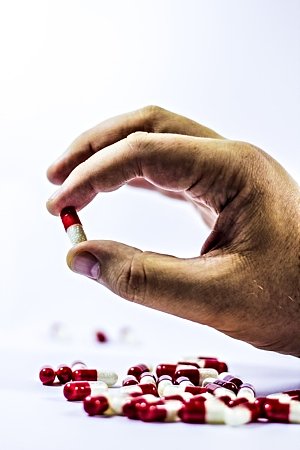
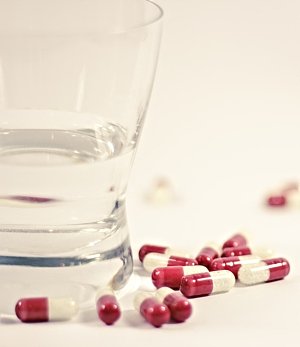
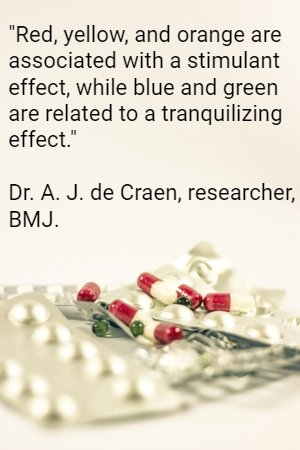
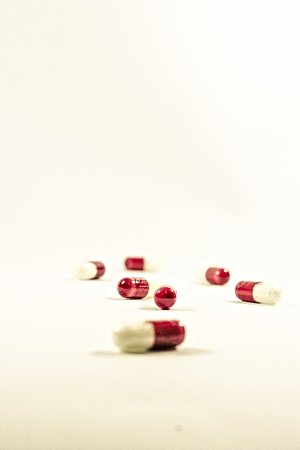
The Mighty placebo :D very interesting read by the way.
Thanks for posting.
It is mighty, you said that well. I am glad you found the read interesting, thanks 💚
Very Interesting and another well researched article @zen-art.
Thank you 💚 I am glad you enjoyed it!
great words! Its pretty silly really how PLACEBO is somehow considered less important than using expensive drugs with toxic side effects.. Placebo WORKS, that is 100% for sure.. so whilst people are trying to understand why.. which they never will because these things are way beyond what science can fully understand yet.. we have the potential to spontaneously heal just using our emotions.. the most POWERFUL creative force in this universe!
i shared a very special video a few months ago that shows a womans tumour viewed with ultrasound disintegrate in under 2 minutes flat with three qi gong masters.. they are in full control of their emotions and energy.. Incredible! They just felt the feeling of her being perfect and already healed..
Our brains are truly amazing as well as our entire bodies of course. There is no knowing what great things we will discover about ourselves if more resources from the military and gun industries would be put to better use and redirected to areas like this one that actually matters. Thank you for sharing that video and for your lovely comment 💚
That reference you gave, about the colour and effect was really intriguing to me. I've even opened the original article, and this is what they found:
Now I have a new pickup line :D
hahahaha, right? The finding was so mind-blowing to me that I had to include it in that photo in the post and show it to those that did not want to read the entire original article. But something is kind of fishy about it... Arent Viagra pills blue and they are supposed to stimulate? :D :D :D
They made it blue in order not to be too stimulative :D
I've kinda sorta followed this over the years. It has always amazed me the accuracy that predictive statisticians can predict the results of a clinical study. If the pre study stats don't match the final results the study may be flawed, or something new might have been learned.
I'm sure glad you are back. Your articles always make me thing.
It was a busy weekend but I am glad I am back too and that you enjoyed yourself while reading this. Awww, predictive statistics, a long lost child of father fortune teller and mother math... Yeah, it can be quite interesting. Thank you for your support honey 💚
Congratulations! Your post has been selected as a daily Steemit truffle! It is listed on rank 6 of all contributions awarded today. You can find the TOP DAILY TRUFFLE PICKS HERE.
I upvoted your contribution because to my mind your post is at least 16 SBD worth and should receive 169 votes. It's now up to the lovely Steemit community to make this come true.
I am
TrufflePig, an Artificial Intelligence Bot that helps minnows and content curators using Machine Learning. If you are curious how I select content, you can find an explanation here!Have a nice day and sincerely yours,

TrufflePigThis post has been voted on by the SteemSTEM curation team and voting trail in collaboration with @utopian-io and @curie.
If you appreciate the work we are doing then consider voting all three projects for witness by selecting stem.witness, utopian-io and curie!
For additional information please join us on the SteemSTEM discord and to get to know the rest of the community!
I appreciate your support, thank you very much 💚💚💚
The body definitely takes a lot of it's cues from the mind, so a positive outlook on a bad diagnosis could do wonders for healing.
Oh yes, our minds are amazing like that and we have so much to discover about them, who knows what else we will find 💚
Hi @steemstem!
Your post was upvoted by Utopian.io in cooperation with @zen-art - supporting knowledge, innovation and technological advancement on the Steem Blockchain.
Contribute to Open Source with utopian.io
Learn how to contribute on our website and join the new open source economy.
Want to chat? Join the Utopian Community on Discord https://discord.gg/h52nFrV
Thank you for your support, it is very much appreciated 💚💚💚
I think this is a critically important post. The placebo effect is PIVOTAL in our wellness & our healing. If you haven't already, please park this in the "mind medicine" NM channel too! Much gratitude for this one.
I have parked it ;) Thank you for your lovely feedback 💚